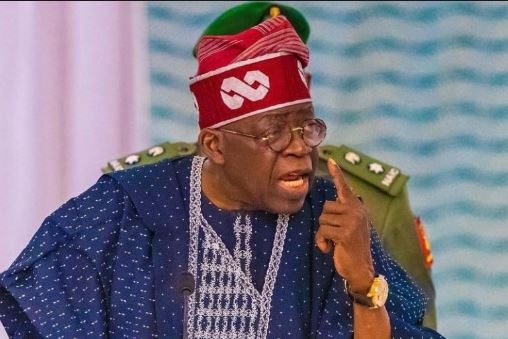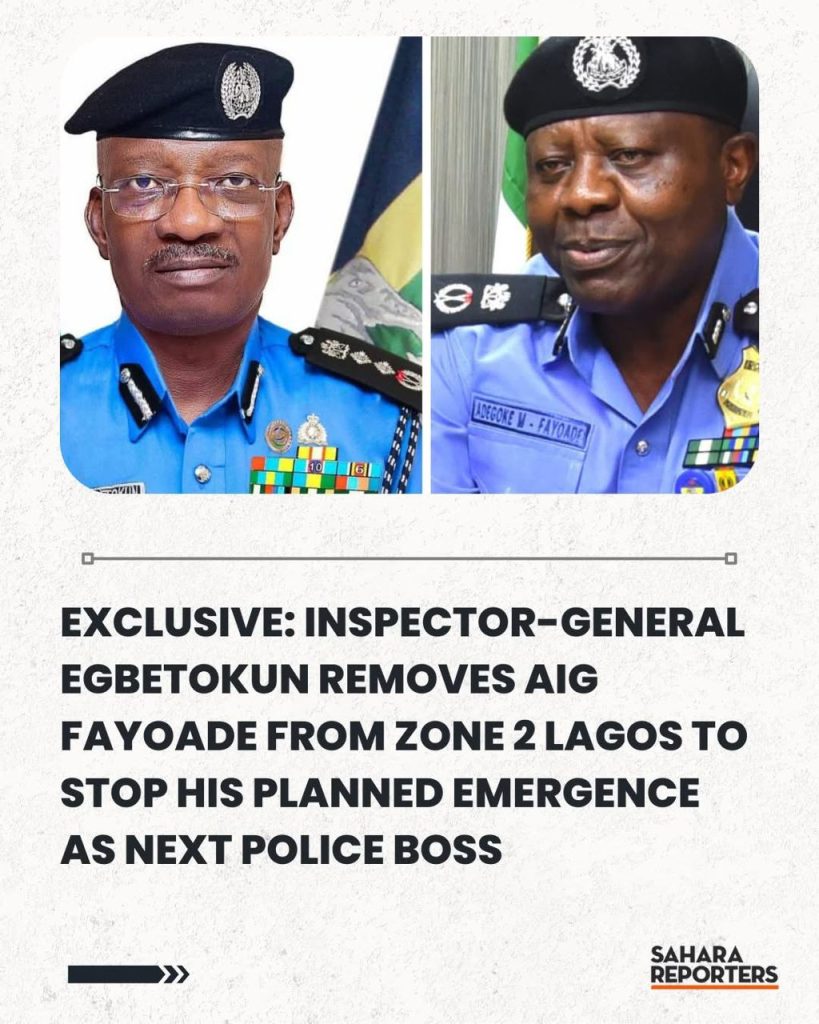
Right to Vote: Any hope for prisoners in 2027?,
•Legal hurdles, judgments & INEC’s headache
By Ikechukwu Nnochiri
In a landmark judgement that was delivered on December 16, 2014, the Federal High Court sitting in Benin, Edo State, pronounced on the right of prisoners in Nigeria to vote.
The court, in the judgement by Justice Mohammed Liman, established that the disenfranchisement of five inmates in elections conducted in the country by the Independent National Electoral Commission, INEC, was illegal and ultra vires.
It held that their fundamental rights were violated as they were sidelined from participating in selecting their representatives in government.
According to the court, voting rights in Nigeria inures to anybody that has attained the age of 18 and is residing in the country at the time of registration of voters for the purpose of election and who is not under any legal incapacity to vote under any law or regulation in force in Nigeria.
It was the position of the court that being an inmate was not an incapacity that could impede the registration and voting right of inmates under section 24 of the 2010 Electoral Act of Nigeria.
The judgement followed a legal action that was instituted suit by five inmates- Victor Emenuwe, Onome Inaye, Kabiru Abu, Osagie Iyekepolor and Modugu Orion (for and on behalf of inmates in Nigeria prisons).
Aside from the INEC, the Comptroller General of Prisons was also listed as defendant in the Originating Summons dated February 18, 2014.
The plaintiffs had specifically urged the court to determine, whether having regard to provisions of section 25 of the 1999 Constitution, as amended, and section 12(1) of the Electoral Act 2010, they were entitled to be registered as voters by INEC.
They equally prayed the court to determine whether in view of provisions of section 77(2) of the Constitution and section 12 (1) of the Electoral Act 2010, they were not entitled to cast their votes at any election in the country.
As well as whether the failure of INEC to make registration and voting provisions for inmates in Nigerian prisons constitutes an infringement on their rights as citizens of Nigeria as enshrined in section 14(1)(2) (a) (b), section 17(2) (a), and section 24(b)(c), section 39 of the 1999 Constitution and Article 13(1) and Article 20 of the African Charter on Human and Peoples Rights.
Even though the court upheld the case, it however limited its decision by safeguarding only the voting rights of the plaintiffs, stressing that under the Federal High Court Civil Procedure Rules 2009, they ought to have obtained leave of court to file the action in representative capacity.
It, therefore, declined to extend the voting right to all other inmates by not directing INEC to update its national register to reflect names of prisoners in the country.
The court equally held that the prison authority was not bound to create registration centers and voting unit for inmates, within the prison yards.
It noted that since alternative arrangements could be made for inmates to exercise their voting right, there was no need to mandate the Respondents to set up registration and polling units within the prison walls.
Rather, the court held that qualified inmates could be taken to the closest voting centers established by INEC, to enable them to exercise their franchise.
Dissatisfied with aspects of the judgement, the plaintiffs took their case before the Benin Division of the Court of Appeal.
They Appellants, among other things, queried the lower court’s decision that other inmates in the country could not benefit from the outcome of the litigation.
They further faulted the trial court for suggesting that they could be moved to voting points outside the precinct of the prison.
It was the contention of the Appellants that allowing inmates to go outside the prison walls to register and vote could amount to an invitation to anarchy, terrorism and disaster.
They requested for polling units to be established in various prisons across the federation to guarantee inmates’ right to vote during elections.
In its own judgement on December 7, 2018, the appellate court affirmed the decision of the high court.
The appellate court, while upholding that prisoners should be taken to nearest voting points, described the right to vote as a choice and not a duty.
It held that such right could be exercised at the instance and volition of the citizen, adding that a prisoner asserts the right when he/she indicates to the prison authority, desire to register or vote.
In the mind of the appellate court, upon such indication, the prison authority then notifies INEC which must take necessary steps to ensure that the prisoner is allowed to register or vote.
Failure to guarantee the right, the court held would amount to an illegal violation of the prisoner’s right to vote.
Unlike the lower court, the appellate court established that the right to vote was not limited to only the Appellants but guaranteed for all eligible prisoners in the country.
Meantime, about 11 years after the judgement was handed and seven years after it was affirmed, no prisoner have been allowed near a registration center or polling unit.
Available statistics showed that there are currently over 80, 000 prisoners in the country with majority of them graded as awaiting trial inmates.
There appeared a glimmer of hope recently after INEC, through its Chairman, Prof. Mahmood Yakubu, revealed that plans are afoot to work out modalities for the participation of inmates in elections.
He said the modalities would include the issue of access to facilities, concerns by political parties, as well as clarifications on the category of inmates the judgement favoured.
The INEC chairman re-echoed the need to seek the intervention of the National Assembly on the matter.
“We are aware that the right to vote is a human right which cannot be taken away from a citizen on account of time being served in a correctional facility. In many parts of the world, including some African countries such as Ghana, Kenya, and South Africa, where our officials observed elections, inmates exercised the right to vote.
“As you are aware, an election is a process governed by law. Working together, we can seize the opportunity of the ongoing electoral reform for a clear legal provision that will specifically cover citizens serving time in our correctional facilities,” the INEC boss added.
Speaking during a recent visit of the Comptroller General of NCoS, Sylvester Nwakuche, to the Commission’s Headquarters in Abuja, Prof. Yakubu disclosed some of the challenges that hampered the implementation of the judgement.
He said: “For our part, we raised the issue of access to the correctional facilities for voter registration, creation of polling units, and voter education. On behalf of stakeholders and for transparency, we also brought to your attention concerns about access to your facilities for observers and the media.
“Political parties also want to know if they will be allowed to campaign in the correctional facilities and appoint polling agents on election day. We believe that working together with you and the stakeholders, we can address these concerns.
“Doing so will also clarify the provision of Section 12(1)[e] of the Electoral Act 2022 on voter registration, a precondition for voting in elections, which restricts the exercise to a Nigerian citizen who ‘is not subject to any legal incapacity to vote under any law, rule or regulations in force in Nigeria’.
There are various interpretations as to whether this provision relates to inmates on death row, those serving life sentences, or those convicted of treason.
“Our immediate task is to engage with the National Assembly for a clear legal provision on inmate voting. Thereafter, we can address the specific issues that may arise in the course of implementation.”
Weighing in on the matter, a lawyer and human rights activist, Mr. Deji Adeyanju, said it was important for prison inmates in the country, particularly those not convicted of capital offences or whose convictions are under appeal, to have the right to vote.
“Denying inmates this right will amount to an additional punishment and undermines the principle that sovereignty belongs to the people, not just to the free citizens outside prison walls. In other democracies around the world, inmates vote because citizenship and the obligations and rights it entails are not extinguished by incarceration.
“To make inmate voting credible, the INEC would need to: Create a verified prison voters’ register that is updated regularly and excludes inmates who are legally disqualified (e.g., under sentence of death)
“Conduct voter education within correctional facilities, explaining both the process and the secrecy of the ballot.
c. Deploy independent observers, including civil society groups and accredited journalists, to monitor the process.
“Establish secure voting stations inside facilities, managed by INEC officials rather than prison staff, to reduce the risk of coercion.
“Ensure ballot security by having transparent chain-of-custody protocols from prison polling stations to collation centres.
“Granting voting rights to inmates would signal that Nigeria’s democracy is maturing and moving away from punitive exclusion towards rehabilitative inclusion. However, public perception would definitely be mixed; some might see it as rewarding lawbreakers.
“However, if the process is implemented transparently and fairly, it could help reduce political disenfranchisement, build trust in electoral institutions, and encourage a more civic-minded prison population,” Adeyanju added.
The post Right to Vote: Any hope for prisoners in 2027? appeared first on Vanguard News.
,
In a landmark judgement that was delivered on December 16, 2014, the Federal High Court sitting in Benin, Edo State, pronounced on the right of prisoners in Nigeria to vote.
The post Right to Vote: Any hope for prisoners in 2027? appeared first on Vanguard News.
, , Nwafor, {authorlink},, , Vanguard News, September 4, 2025, 12:45 am












